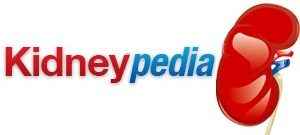A kidney stone is a hard crystalline formation that is produced when minerals (most commonly calcium) precipitate from urine and form a solid mass. Kidney stones normally form in the kidneys, as the name suggests, and travel with the urine through the urethra and into the bladder where they are eliminated along with other bodily wastes. This process is known as “passing” a kidney stone. However, when kidney stones grow to a large enough size, they can become lodged in the tiny vessels of the kidney or in the urethra, and be more difficult to pass, or in some cases impossible to pass without treatment.
Symptoms
A kidney stone that is small enough to be passed without becoming lodged generally presents no symptoms at all. A stuck kidney stone, however, can give rise to symptoms including severe pain (often experienced in waves corresponding to urethral peristalsis, or the periodic contractions of the urinary vessels), nausea and vomiting, constant desire to urinate, blood in the urine, and painful urination. If the condition continues and is not treated, kidney damage can result.
Gender
Kidney stones are about four times more common in men than in women. However, the causes, symptoms, prognosis, and treatment of kidney stones are the same in both genders.
In pregnancy, women become no more susceptible to developing kidney stones, but kidney stones are more likely to exhibit symptoms, and some common treatments for kidney stones (such as the use of opioid drugs for pain relief) may create complications in some stages of pregnancy. Some forms of medical imagery may be ruled out in certain stages of pregnancy as well, especially those relying on radiation, although ultrasound imaging is safe.
Also, if kidney stones occur late in pregnancy accompanied by high blood pressure, this can be an early sign of pre-
Passing Kidney Stones At Home
In most cases, kidney stones require no treatment other than monitoring and pain management. When symptoms appear, a doctor will likely try to identify the size and chemical composition of the stone using medical imaging technology and other diagnostic tests. Most of the time, the doctor will prescribe pain medication, which may be nothing more than Tylenol, but in some cases may include stronger analgesics such
as opioid drugs. The body will pass the stone naturally and does not require hospitalization.
The patient knows that the stone has been passed when pain and other symptoms disappear. Follow-
Lithotripsy, the use of ultrasound pulses to shatter kidney stones, is a common treatment when the stones are no more than half an inch in diameter and are located near the kidney. This treatment does not break the skin. Minimally-
